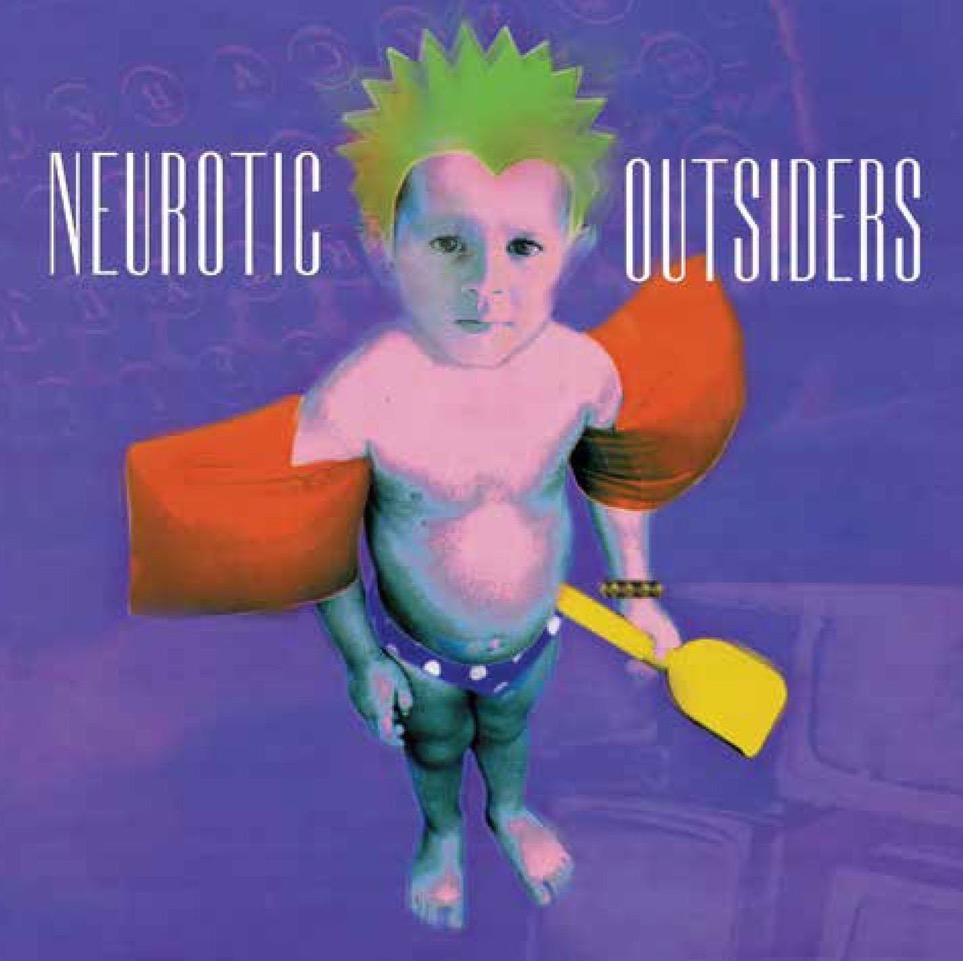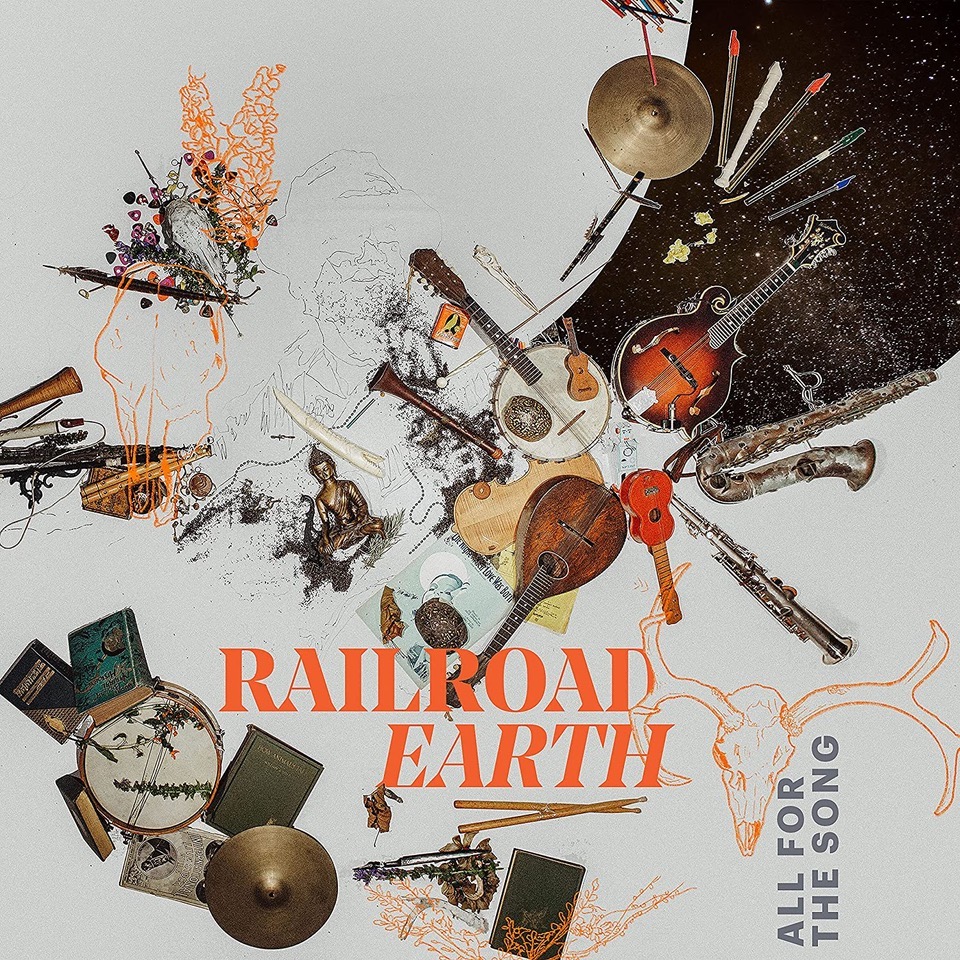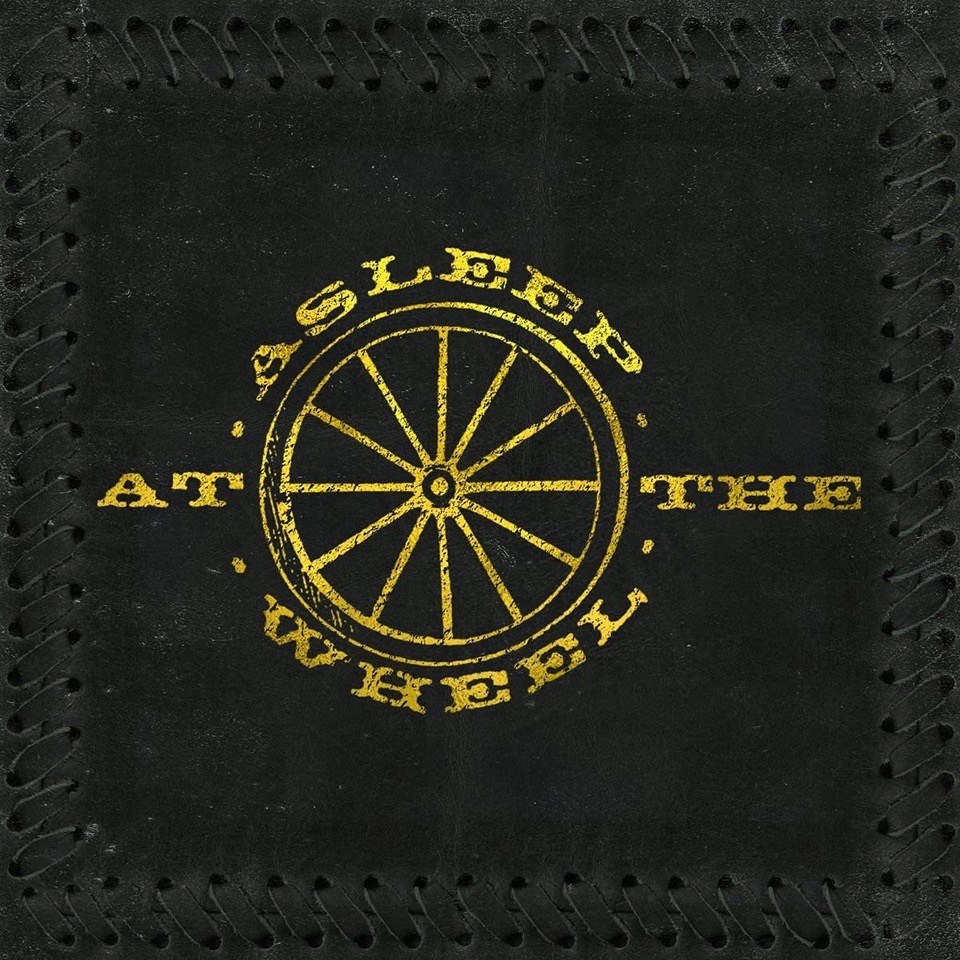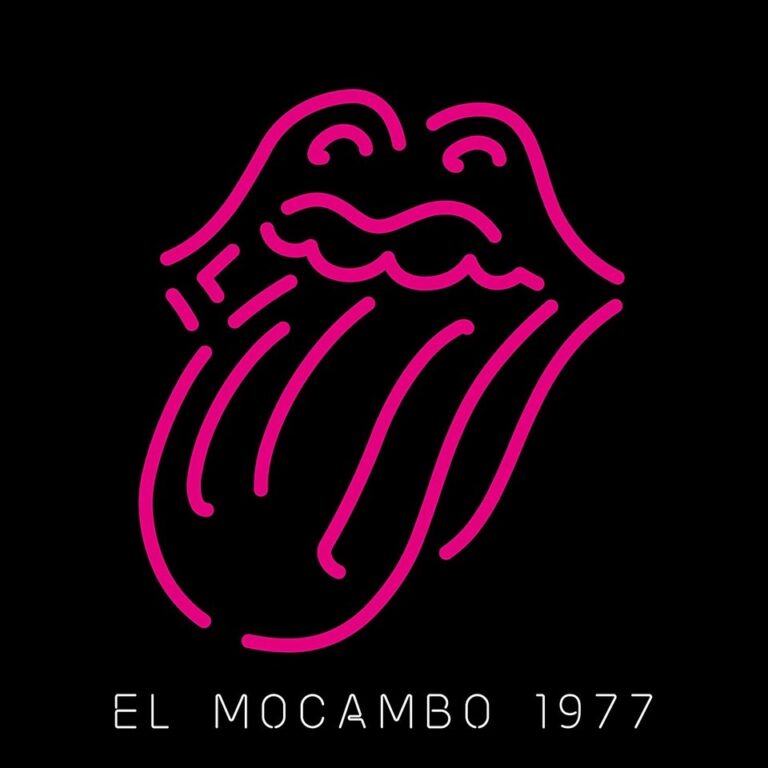The audience makes considerably less noise on the Rolling Stones’ new El Mocambo 1977 than on any of the group’s many other recently issued concert recordings, but that’s not because the shows it captures are any less praiseworthy. On the contrary, this Toronto recording ranks with the best of the Stones’ live LPs. Most of the other ones, though, find the group in huge arenas or even bigger outdoor venues. The audience for the 2006 Rio de Janeiro concert featured on last year’s A Bigger Bang Live on Copacabana Beach, for example, was estimated at an astonishing one and a half million. By contrast, the capacity crowd for the El Mocambo shows totaled just 300 people.
The venue’s size was bad news for anyone who couldn’t gain admission to witness the Stones’ unadvertised appearance there, where they were billed as the Cockroaches, purportedly an obscure opening act for Canada’s April Wine. The intimate club setting turned out to be great news, however, for those who attended – as it is for listeners to El Mocambo 1977 – because it seemingly helped to recharge the group.
Think of this as the Stones’ version of the Beatles’ 1969 rooftop concert at Abbey Road studios: in both cases, a small audience watched as a supergroup made a surprise appearance, reverted to elemental rock and roll, and seemed looser and more engaged than it had in the stadiums. The excellence of 1978’s Some Girls, which the Stones began recording only seven months after their El Mocambo shows, may have seemed surprising to many people at the time but probably not to anyone who attended these Toronto concerts, where Mick Jagger, Keith Richards, Charlie Watts, Bill Wyman, and then-new member Ronnie Wood were all in top form, as were such guests as keyboardist Billy Preston.
You can hear for yourself just how fired up they all were at these shows on the well-recorded El Mocambo 1977, the first-ever release of one of the group’s two full performances there. (Four tracks from the shows were included on 1977’s Love You Live and were a highlight of that release.) This two-CD set features a new Bob Clearmountain mix and includes the band’s entire March 5 set plus three songs from their show on the previous night.
The 107-minute, 23-song program embraces some of the Stones’ biggest hits, such as “It’s Only Rock ‘n’ Roll,” “Jumpin’ Jack Flash,” “Honky Tonk Woman,” “Let’s Spend the Night Together,” and “Brown Sugar,” plus five of the eight tracks from the then recently issued (and somewhat underrated) Black and Blue, including the excellent “Fool to Cry” (but, alas, not the great “Memory Motel”). Also here are covers of six of the early American blues-rockers that inspired the group, such as Chuck Berry’s “Around and Around,” Willie Dixon’s “Little Red Rooster,” Bobby Troup’s “Route 66” and Muddy Waters’s “Mannish Boy.”
The El Mocambo may have been filled to capacity with its audience of 300, but if you crank this music up and close your eyes, you can feel as if you’ve squeezed in as No. 301.
Also Noteworthy

Neurotic Outsiders, Neurotic Outsiders (Expanded). If you’re not a fan of the sort of high-octane, high-volume rock that prompts the neighbors to call the police, this album may not be for you. That said, this remaster of the eponymous 1996 debut from Neurotic Outsiders, which adds four tracks from a rare Japanese EP, is fantastic. The group – which consisted of the Sex Pistols’ Steve Jones, Duran Duran’s John Taylor, and Guns N’ Roses’ Duff McKagan, and Matt Sorum – delivers an array of blistering originals (plus a cover of the Clash’s “Janie Jones”) that will knock your socks off. The Neurotic Outsiders – well-produced by Talking Heads’ Jerry Harrison – combine all the best elements of the aforementioned outfits, plus hints of bands like the Ramones and the Jesus and Mary Chain. Listening to guitar and vocal triumphs like “Angelina” and “Good News,” you may find it hard to believe that this album failed to catch on when it first appeared and has been out of print for years. Don’t miss this second chance to grab it.

Railroad Earth, All for the Song. You’ve heard of destination weddings; having lost founding member Andy Goessling to cancer a few years ago, the guys in the New Jersey–based Railroad Earth decided they needed a destination recording to shake things up and rejuvenate their music. So, they headed to New Orleans, where they made this wonderful seventh full-length album. You can hear some Big Easy influence in the frequently horn-spiced tracks on All for the Song, and you can also hear a super-talented and inventive Americana band at the peak of its powers. Railroad Earth’s richly textured, rootsy songs draw on elements of rock, jazz, country, folk, bluegrass, and even classical music to communicate a wide range of emotions – everything from heartbreak to joy. The album is every bit as good as somewhat similarly styled sets from better-known bands like Wilco and the Jayhawks.

Asleep at the Wheel, Half a Hundred Years. Someone must have been asleep at the wheel because this mid-2021 release didn’t reach me until recently. Better late than never. Group prime mover Ray Benson ponders the Western swing–influenced country band’s 50-year history in the title cut of the 19-track album, which includes new versions of some of its best-known songs, such as “Bump Bounce Boogie,” “The Letter That Johnny Walker Read,” “Miles and Miles of Texas,” and “Take Me Back to Tulsa.” Joining in on the fun are a long list of luminous guest artists, such as Lyle Lovett, George Strait, Willie Nelson, Johnny Gimble, and Emmylou Harris. Somewhere, Bob Wills is smiling.
Jeff Burger’s website, byjeffburger.com, contains five decades’ worth of music reviews, interviews, and commentary. His books include Dylan on Dylan: Interviews and Encounters, Lennon on Lennon: Conversations with John Lennon, Leonard Cohen on Leonard Cohen: Interviews and Encounters, and Springsteen on Springsteen: Interviews, Speeches, and Encounters.



